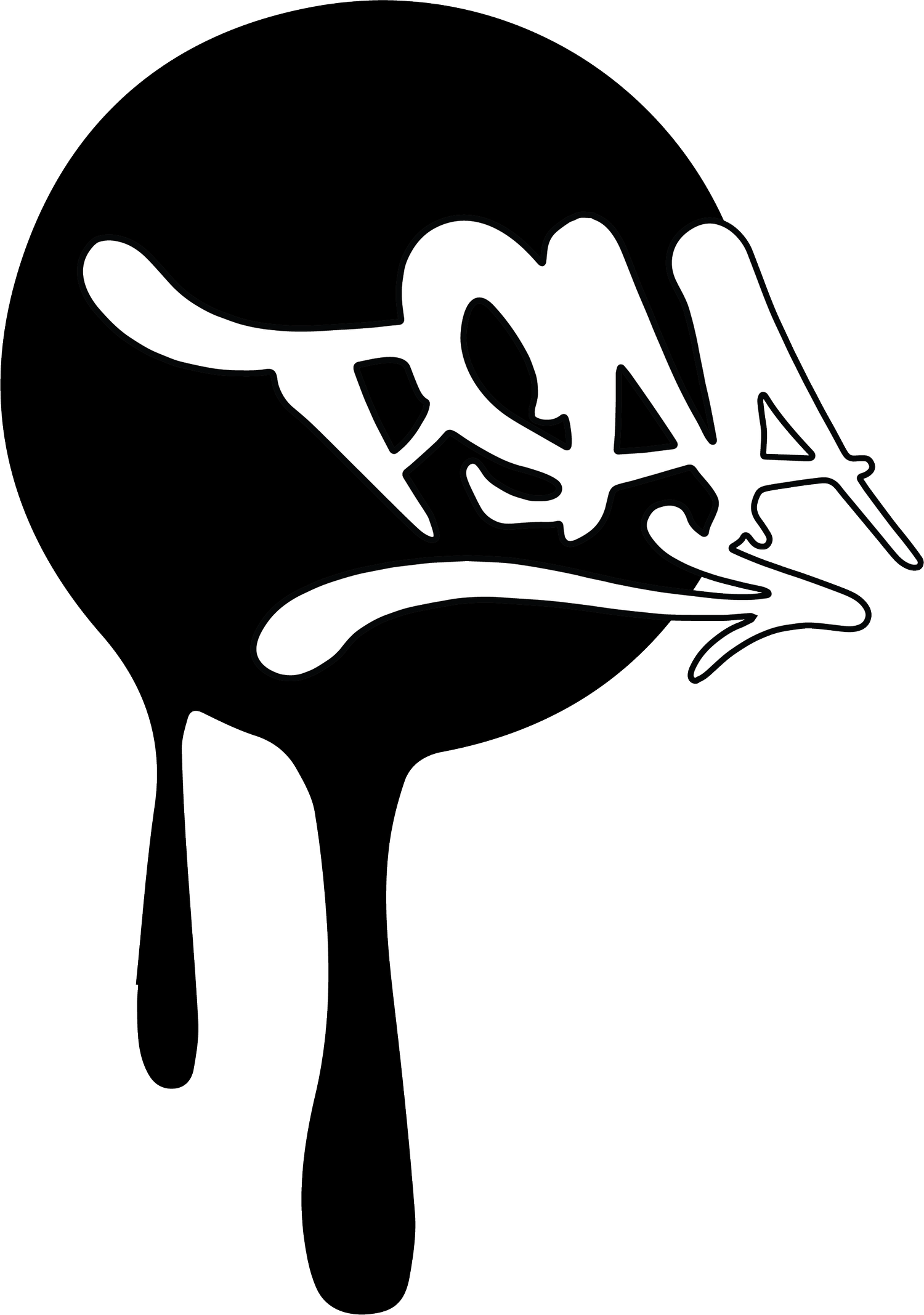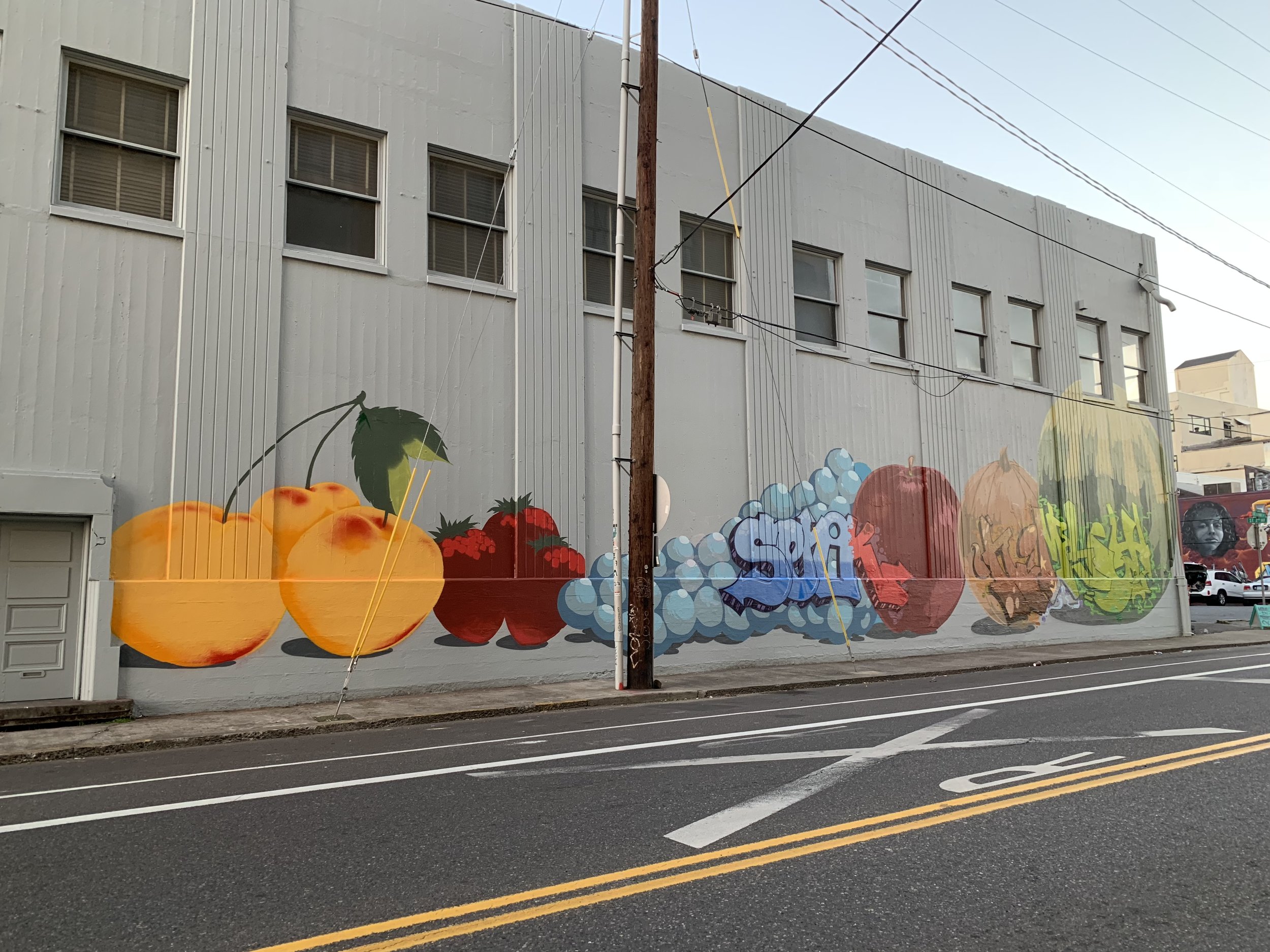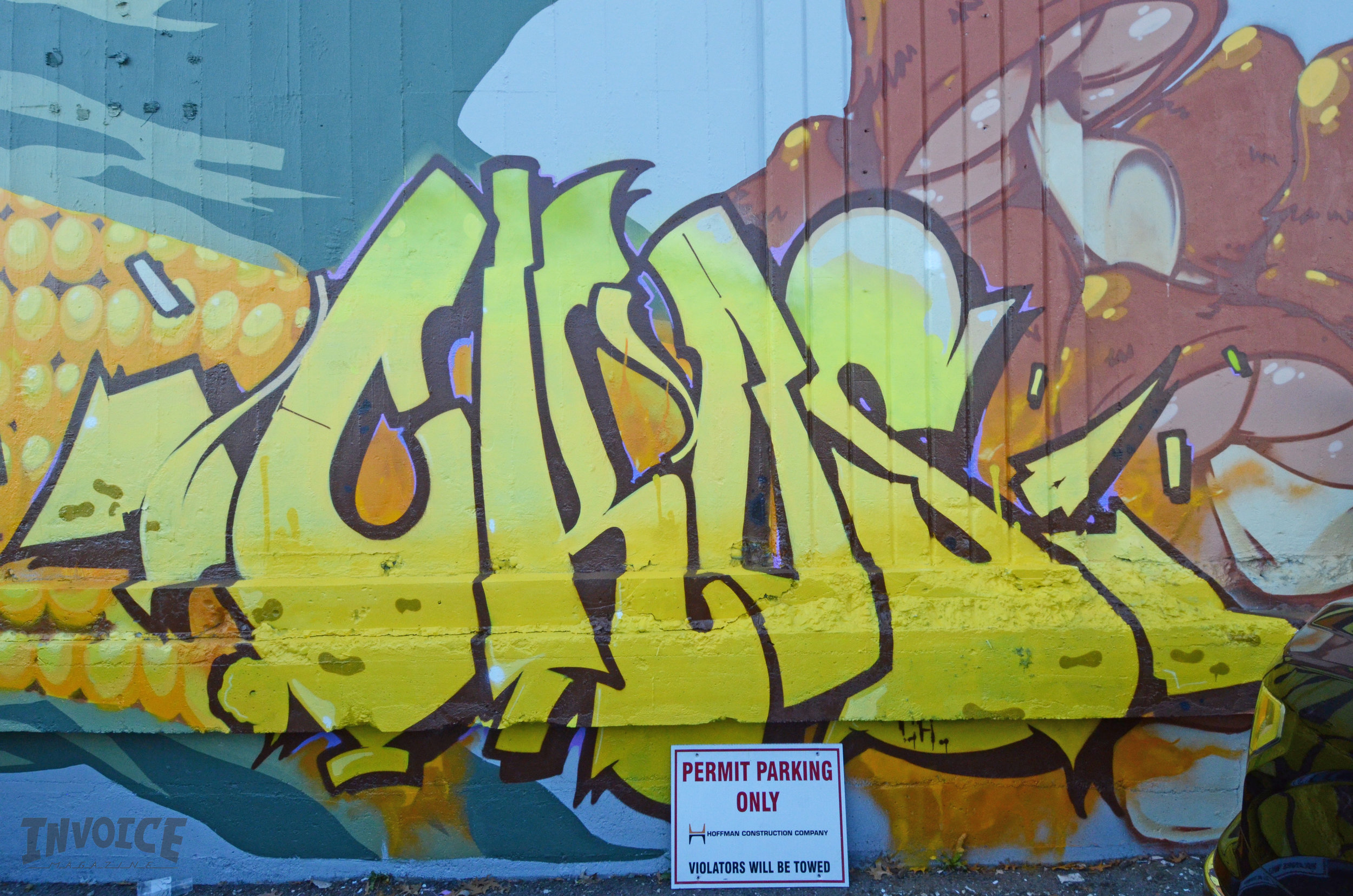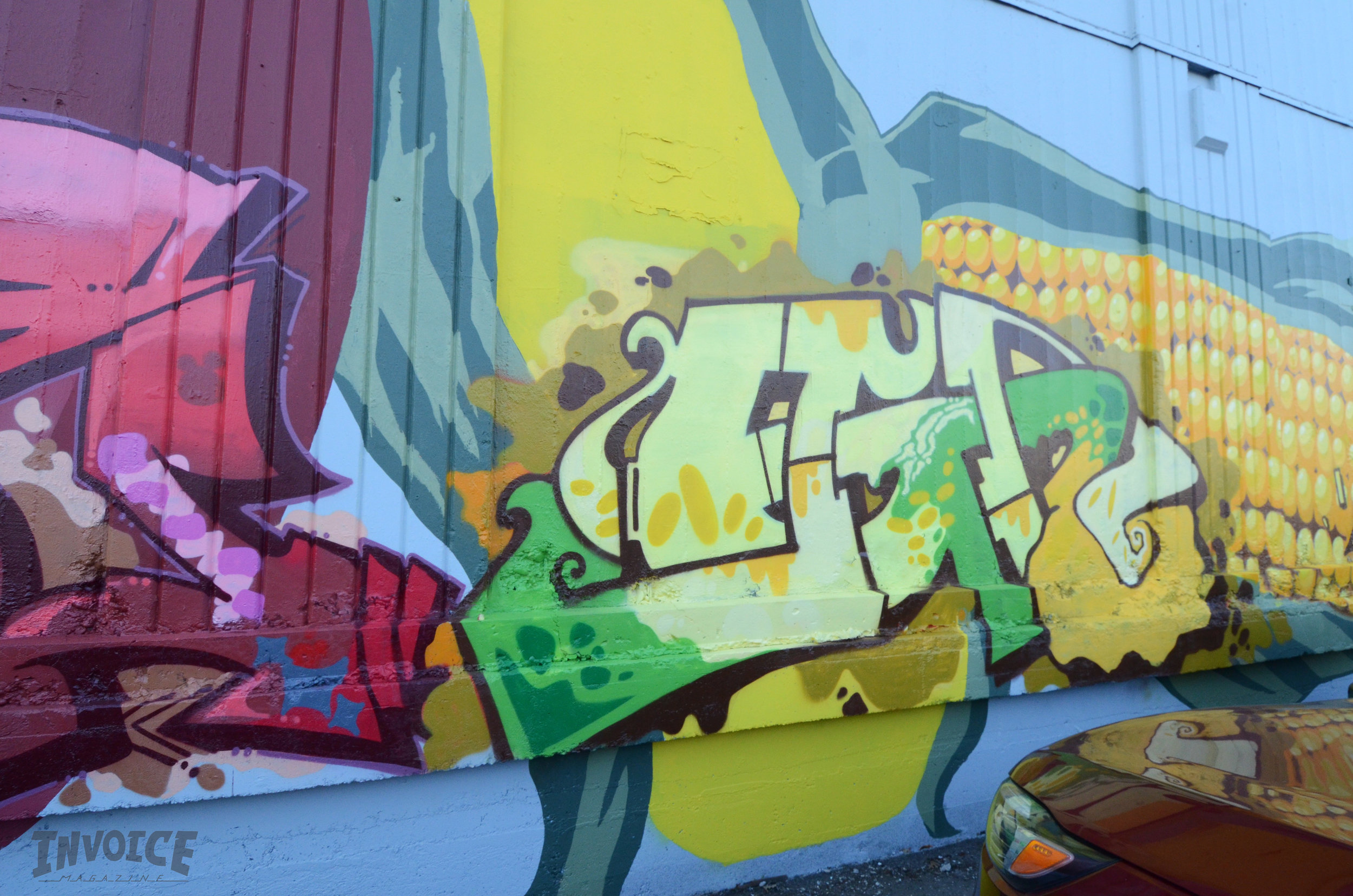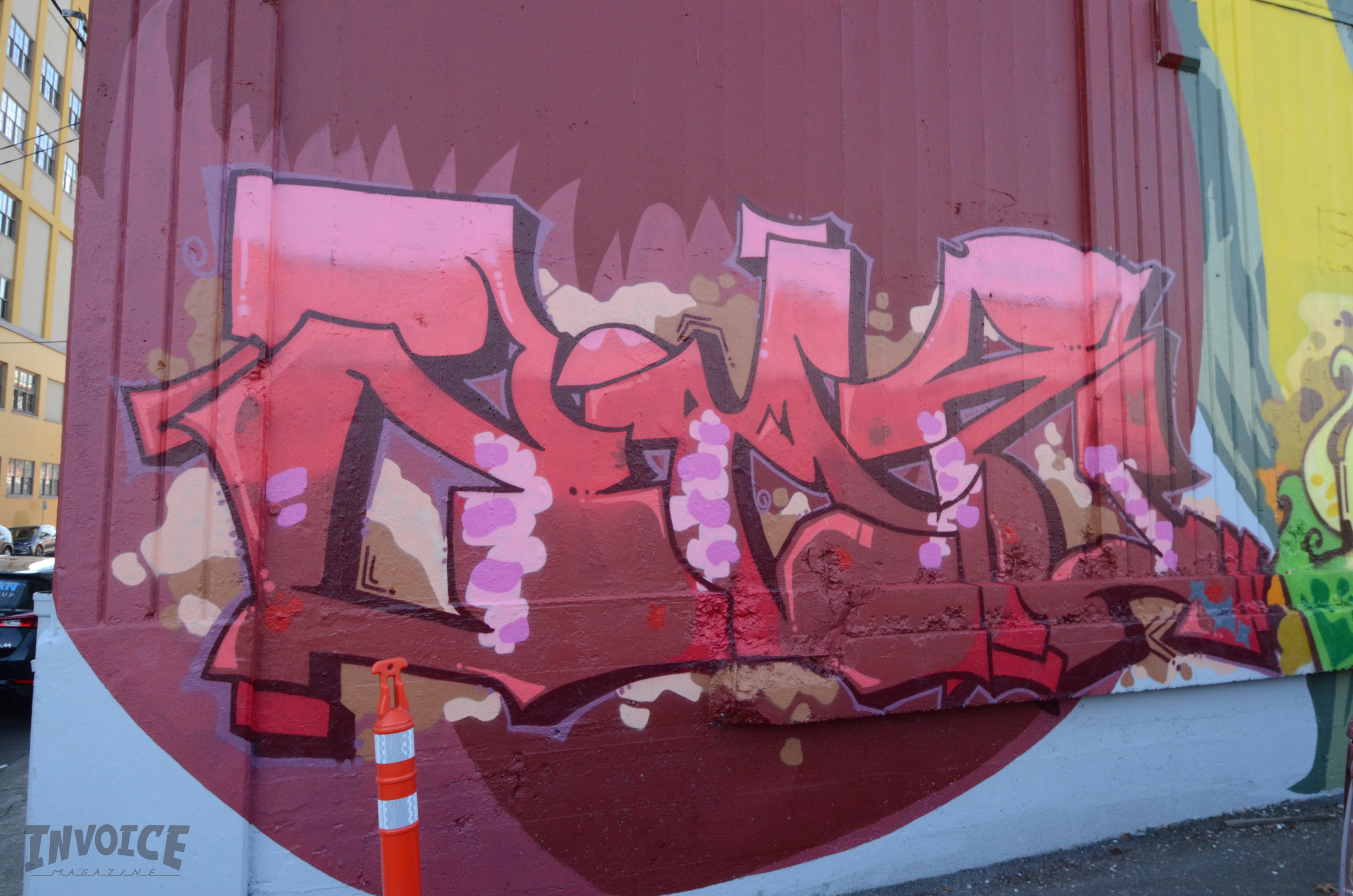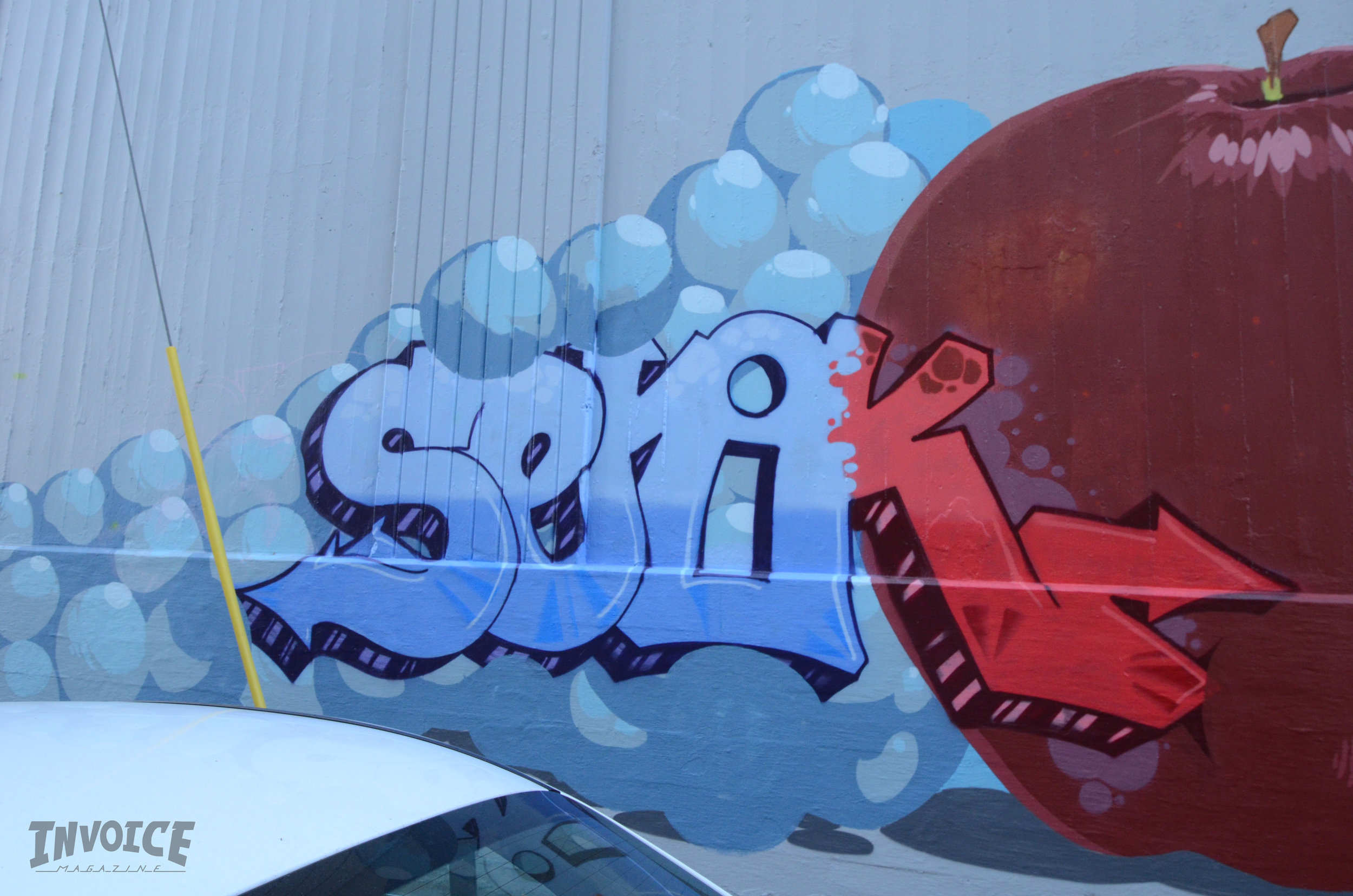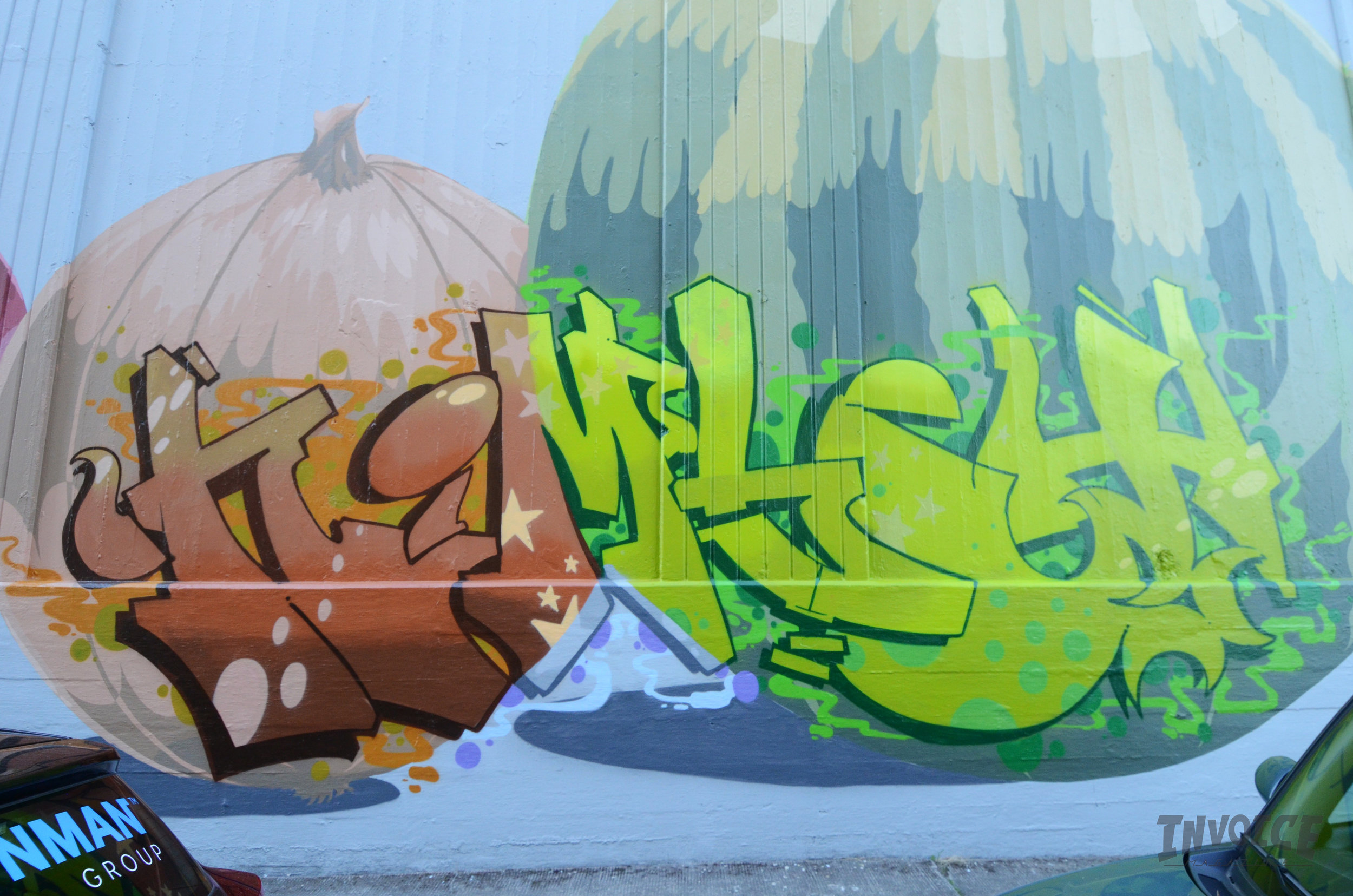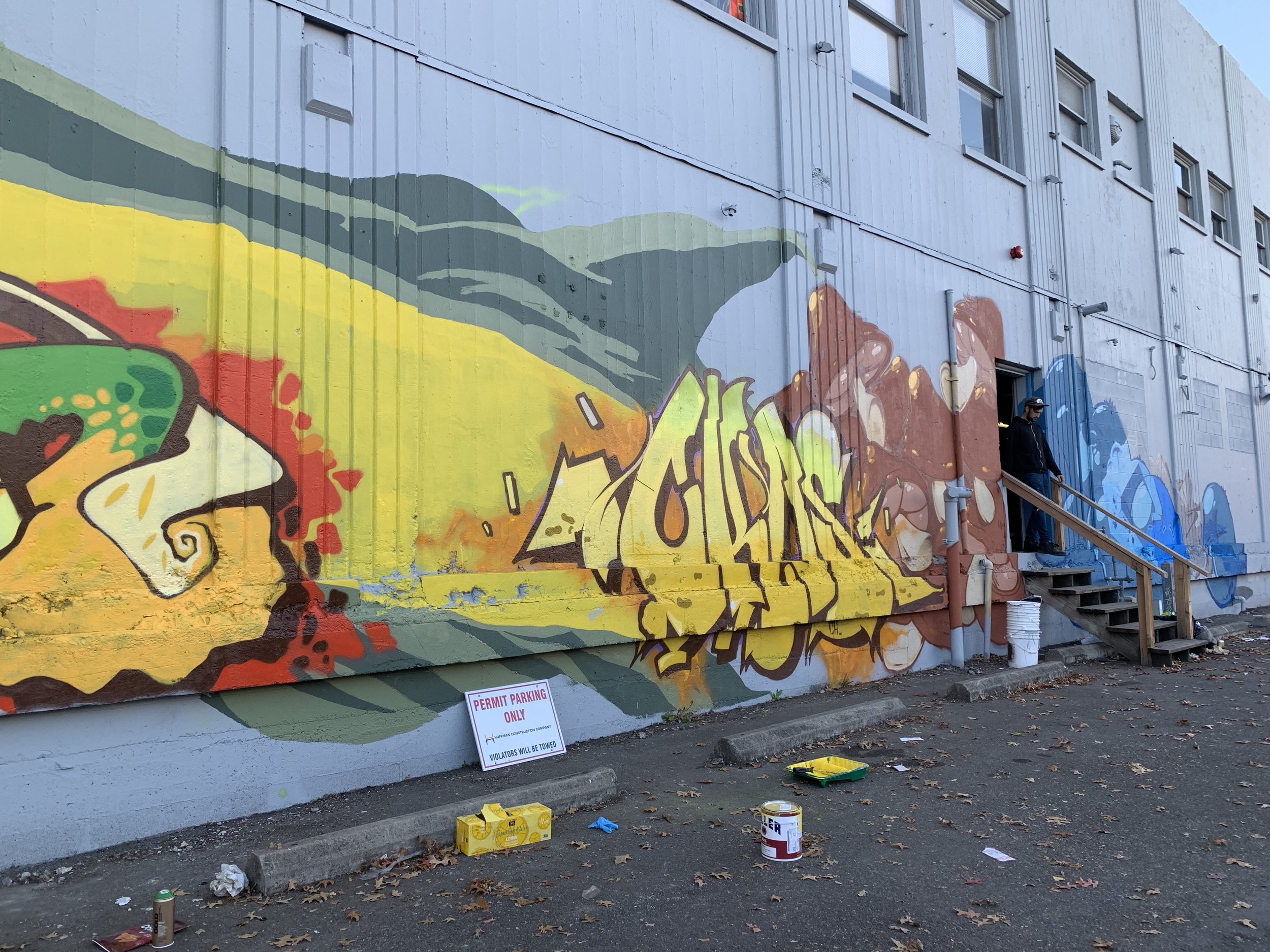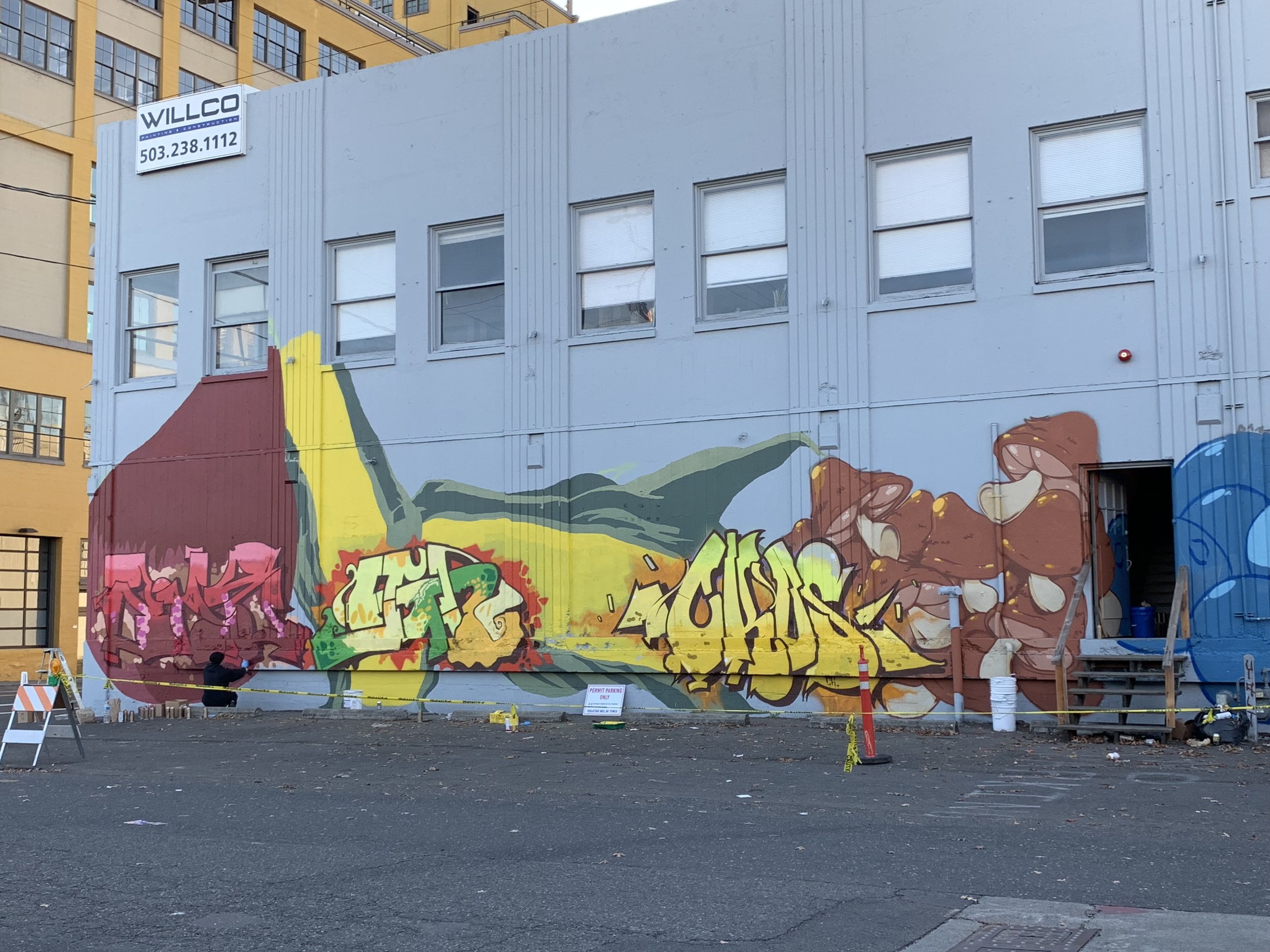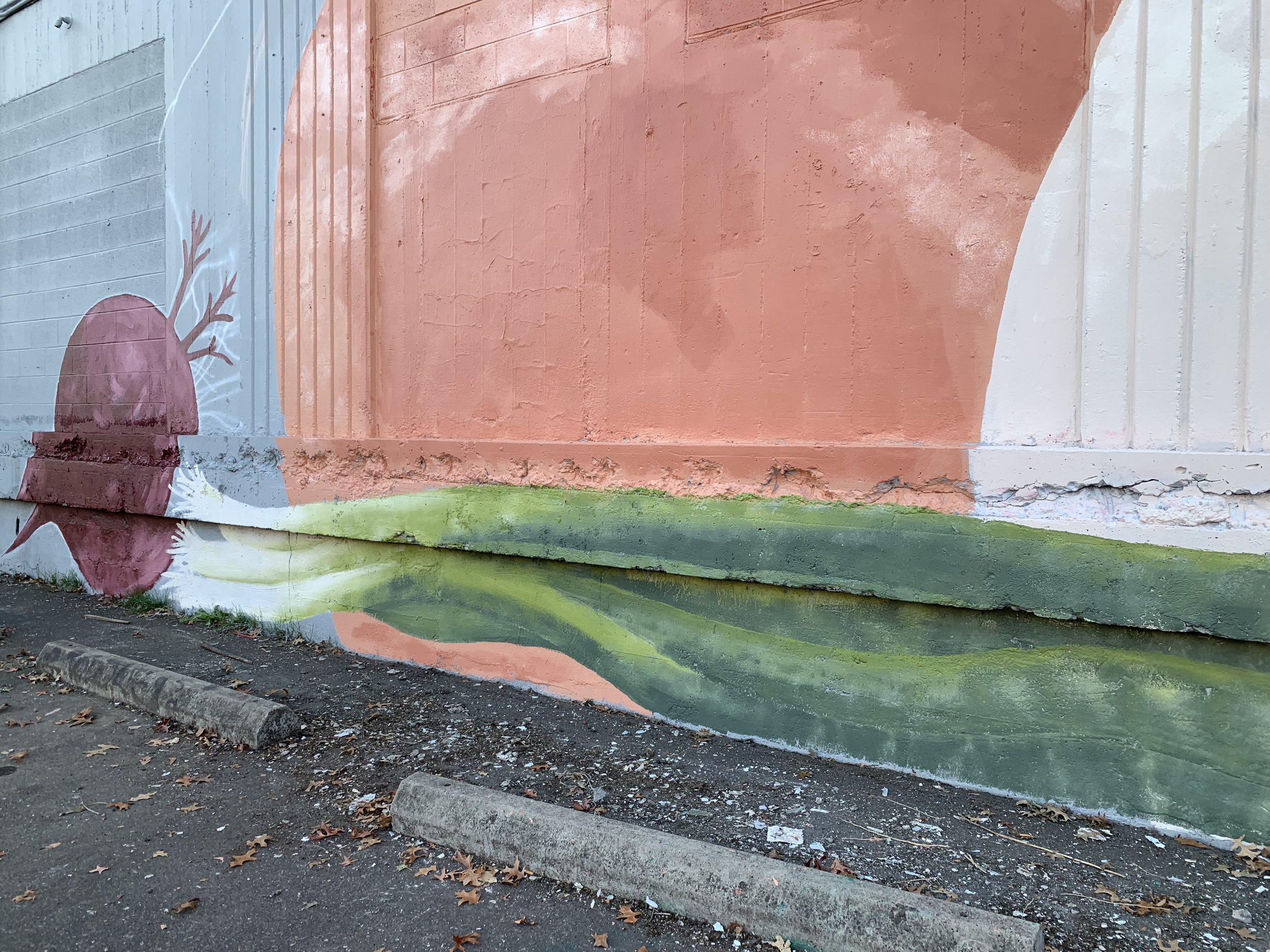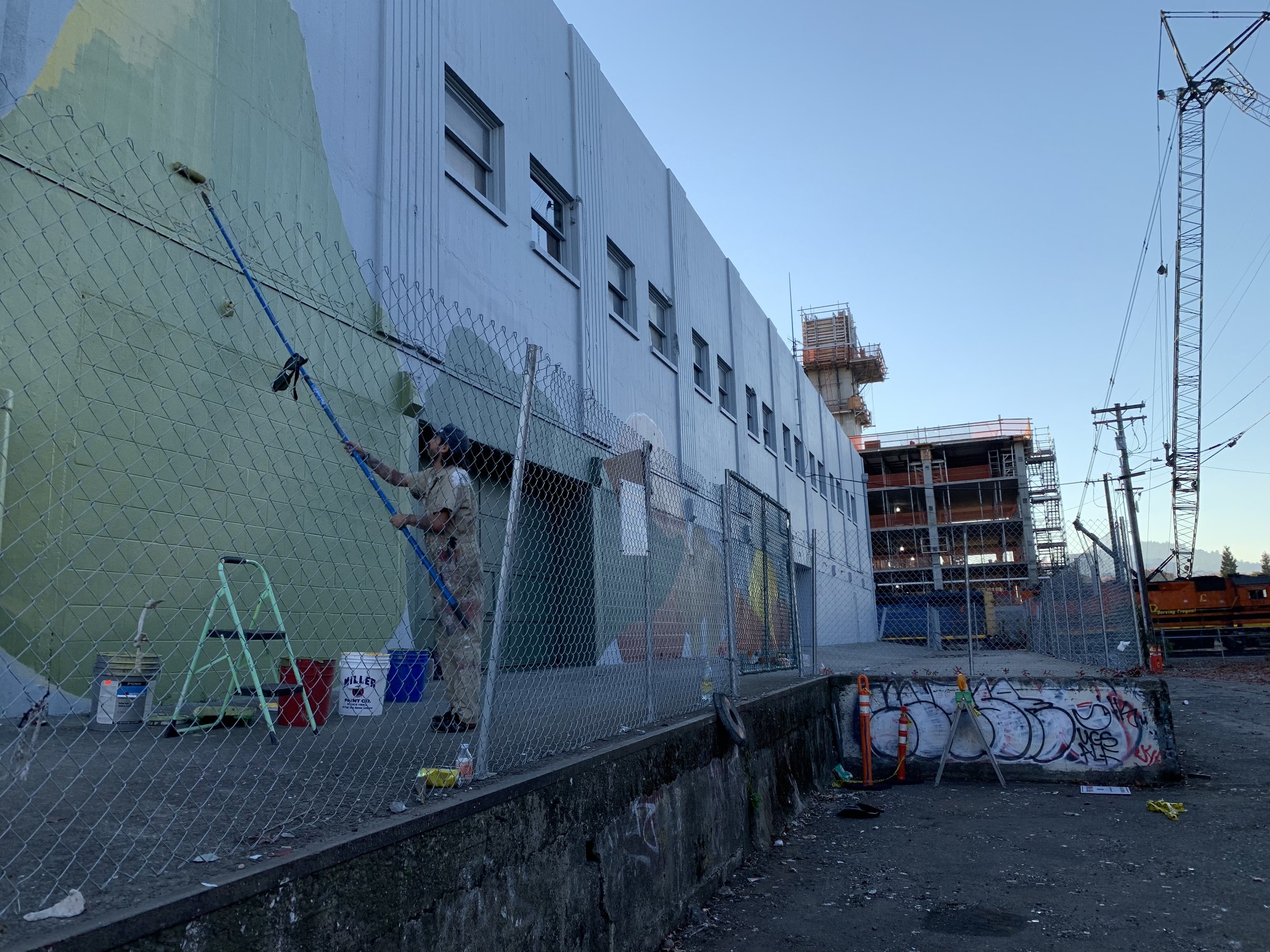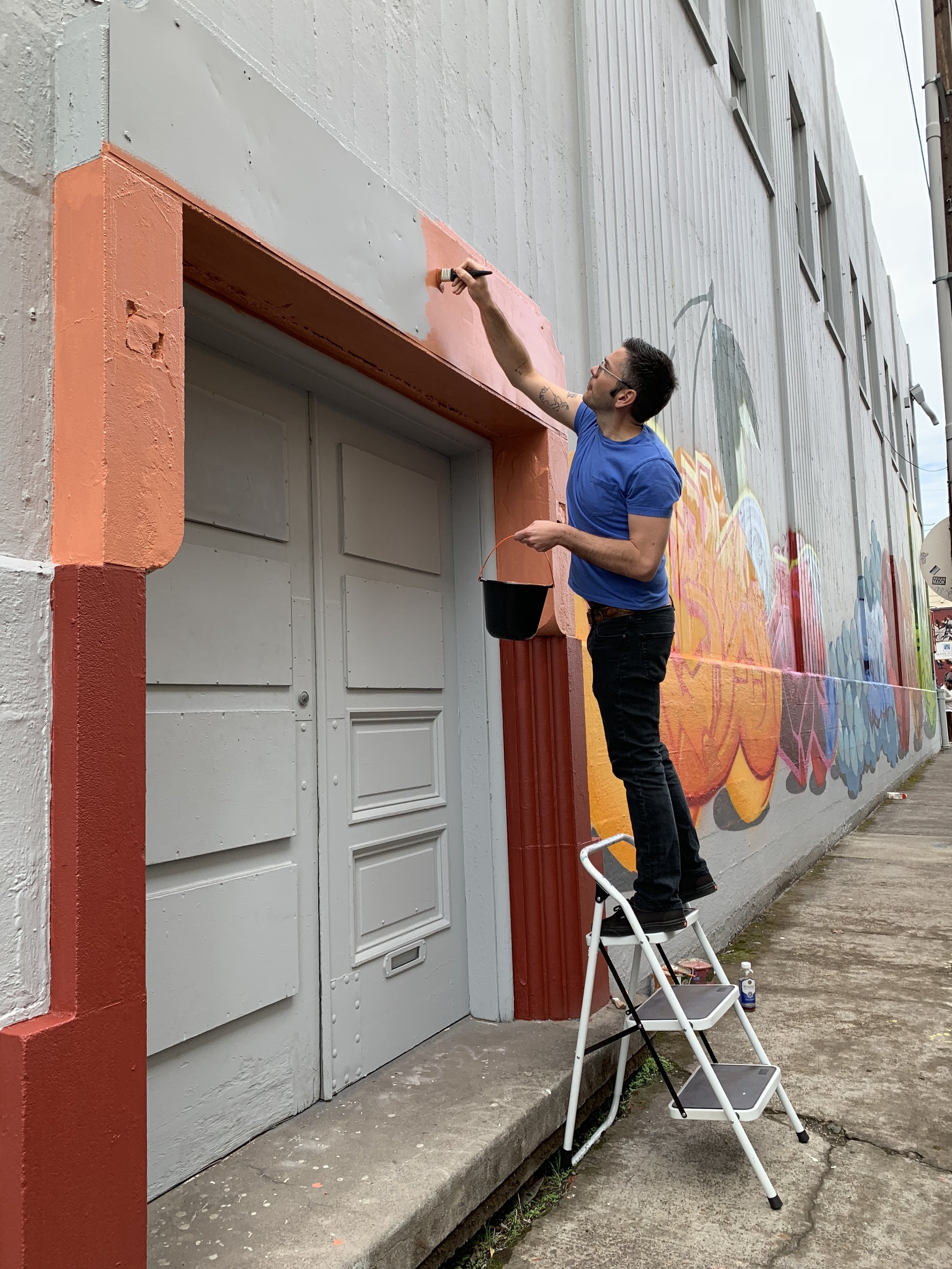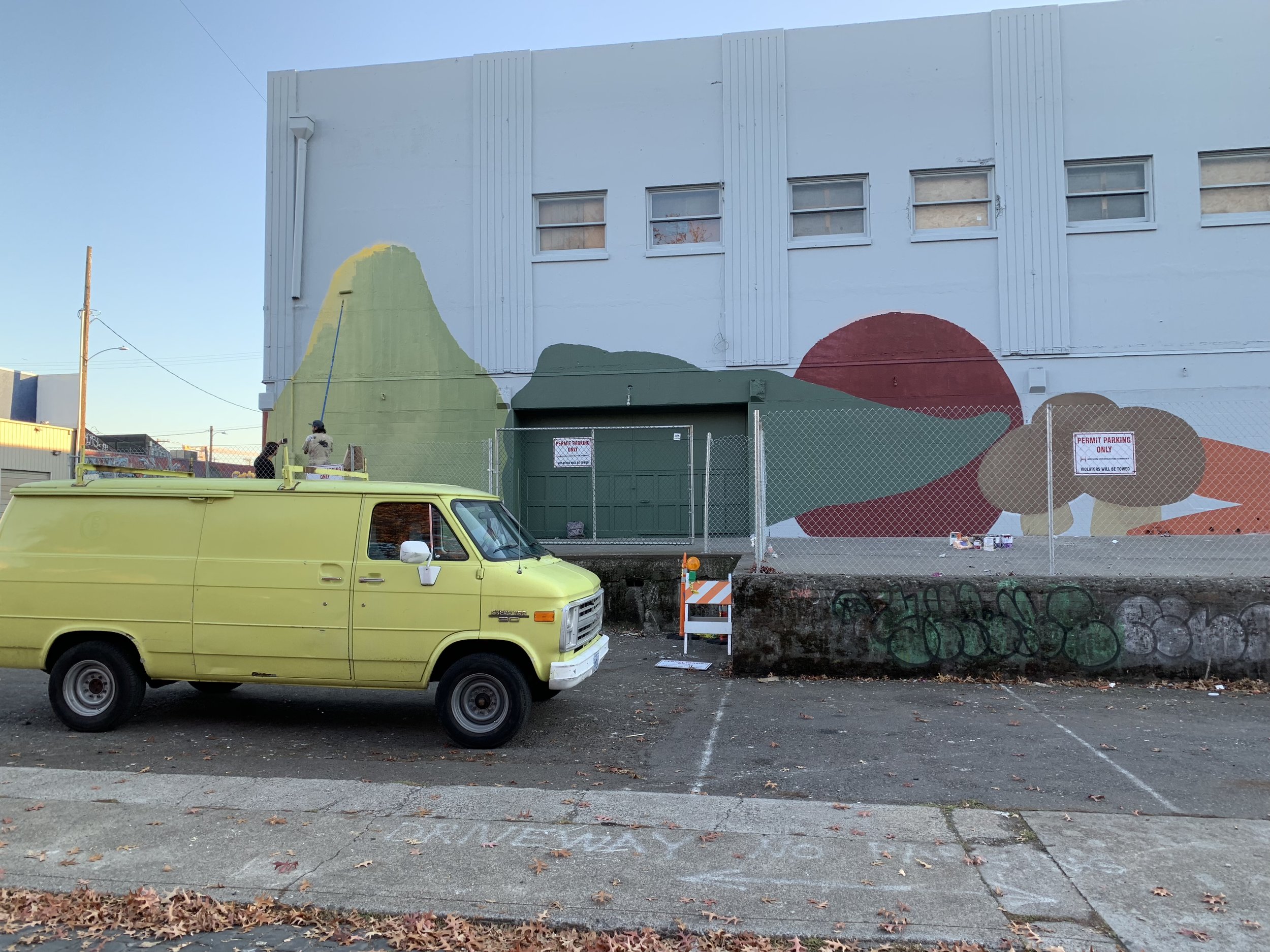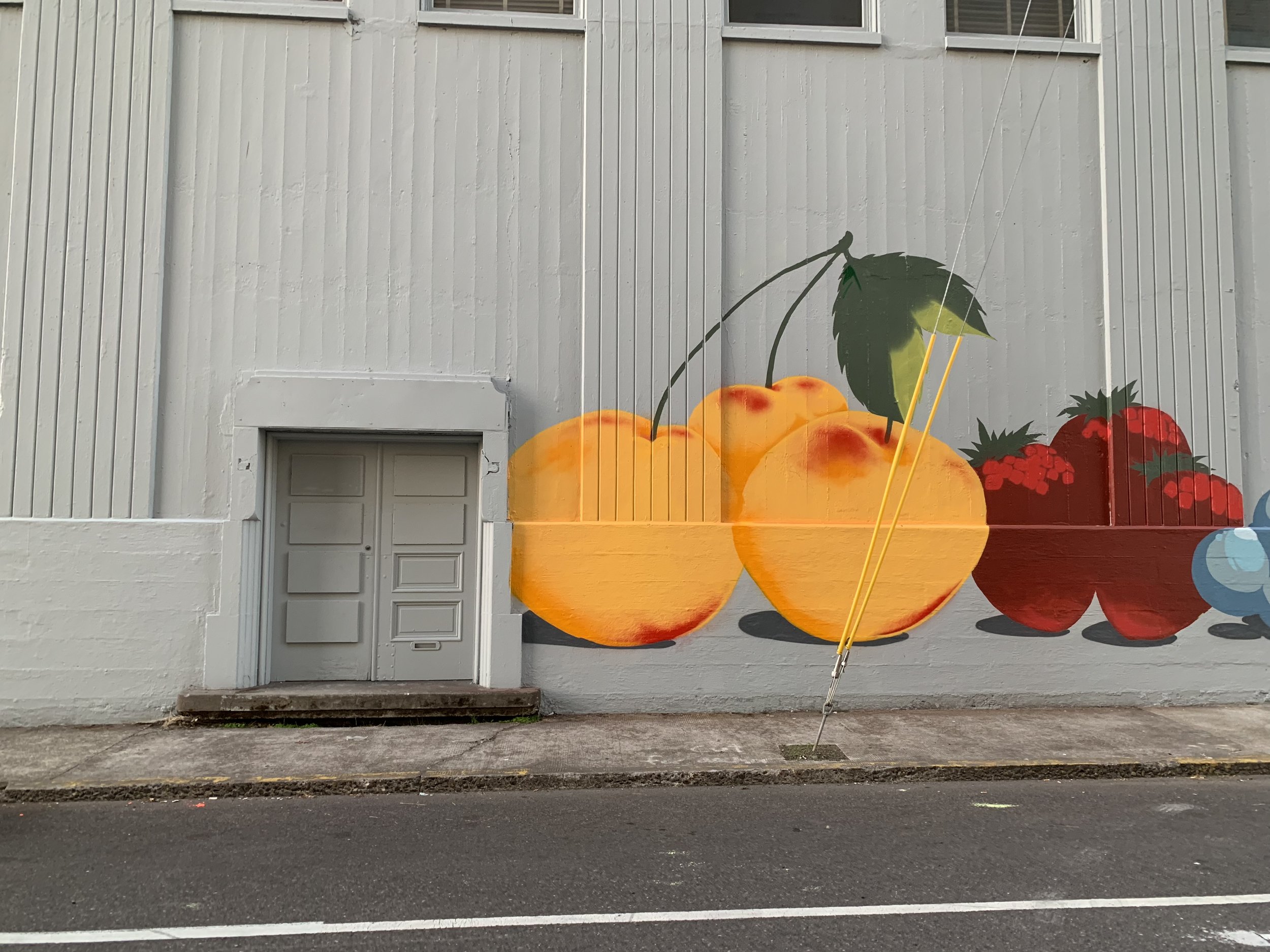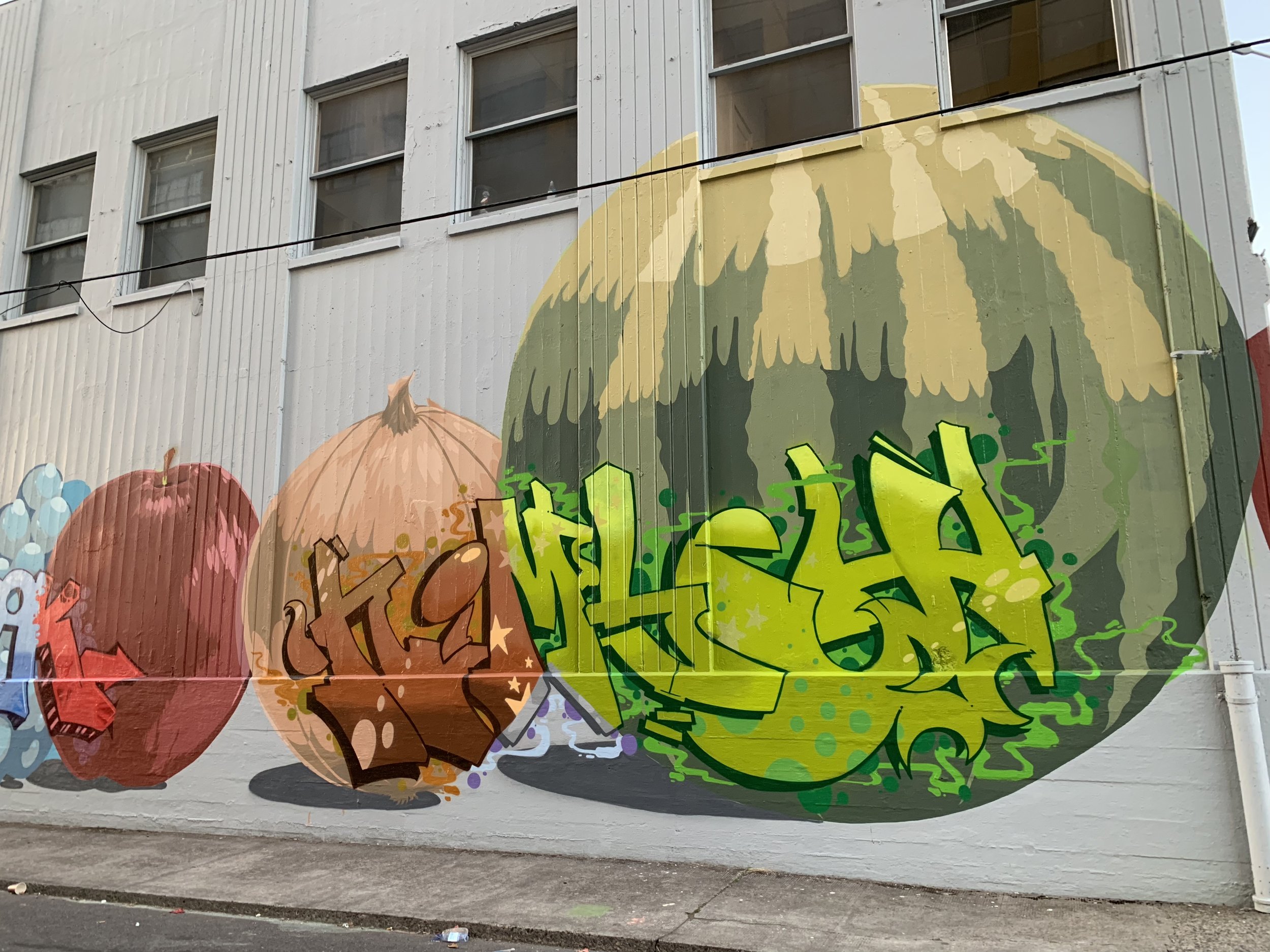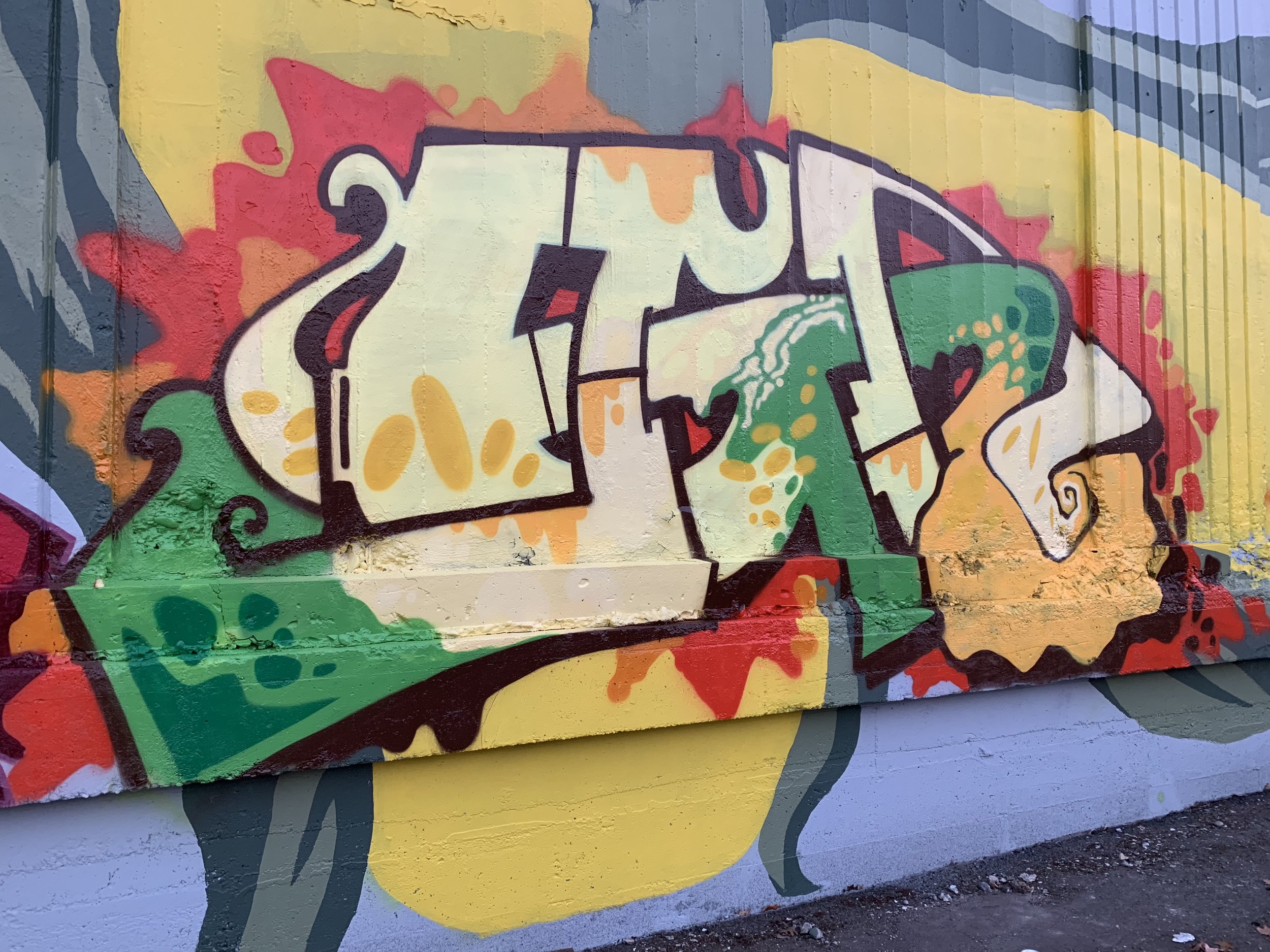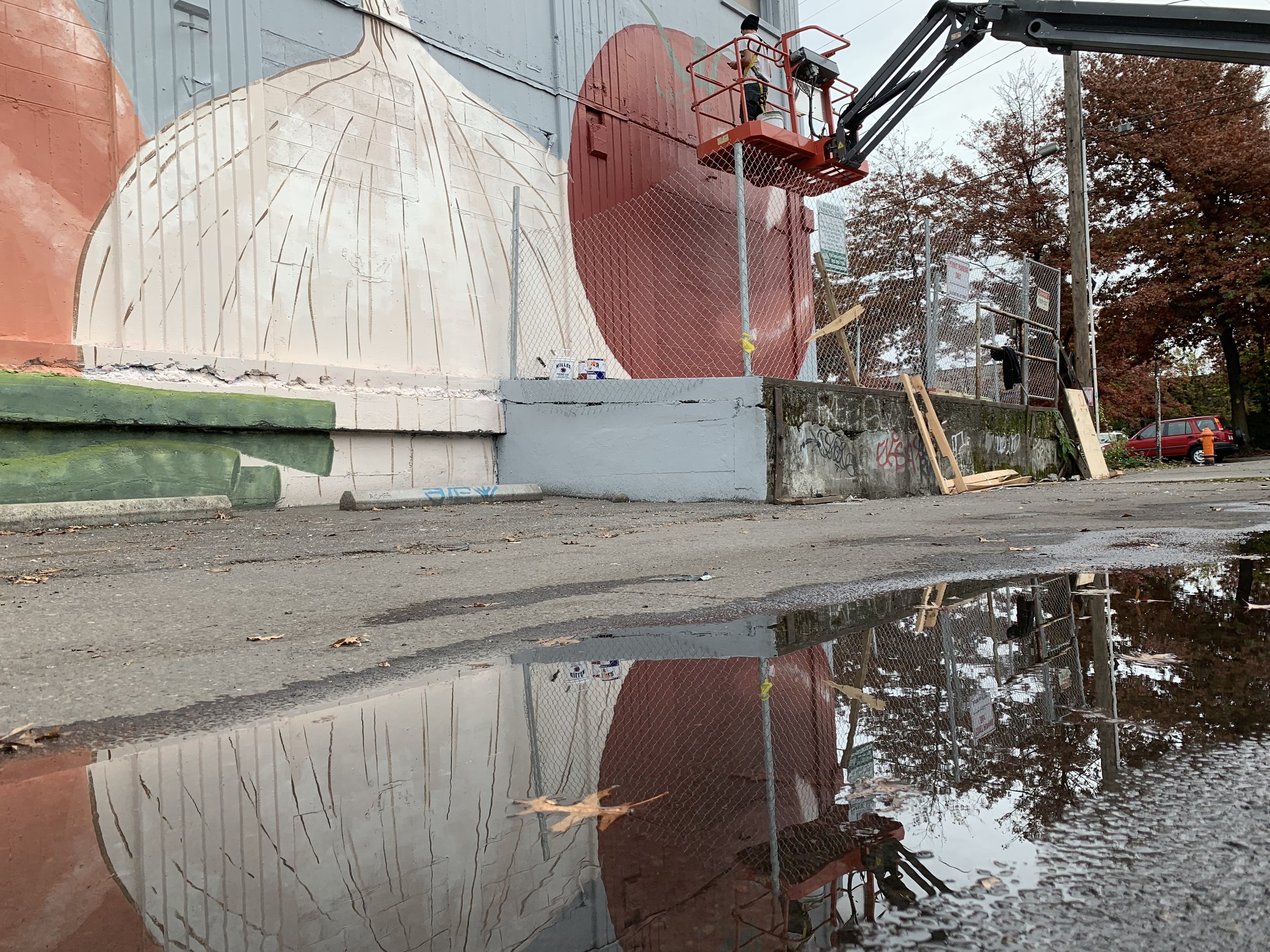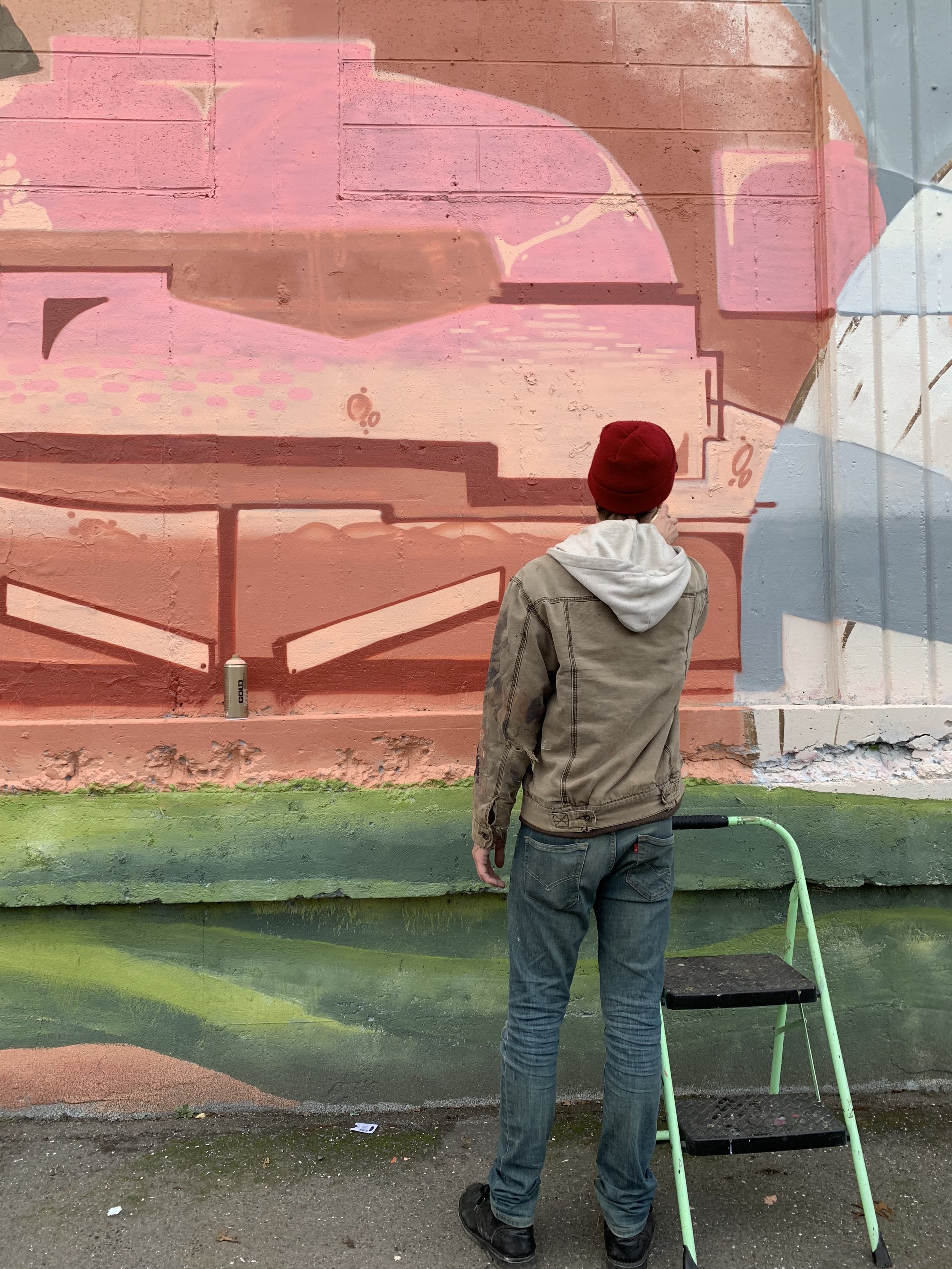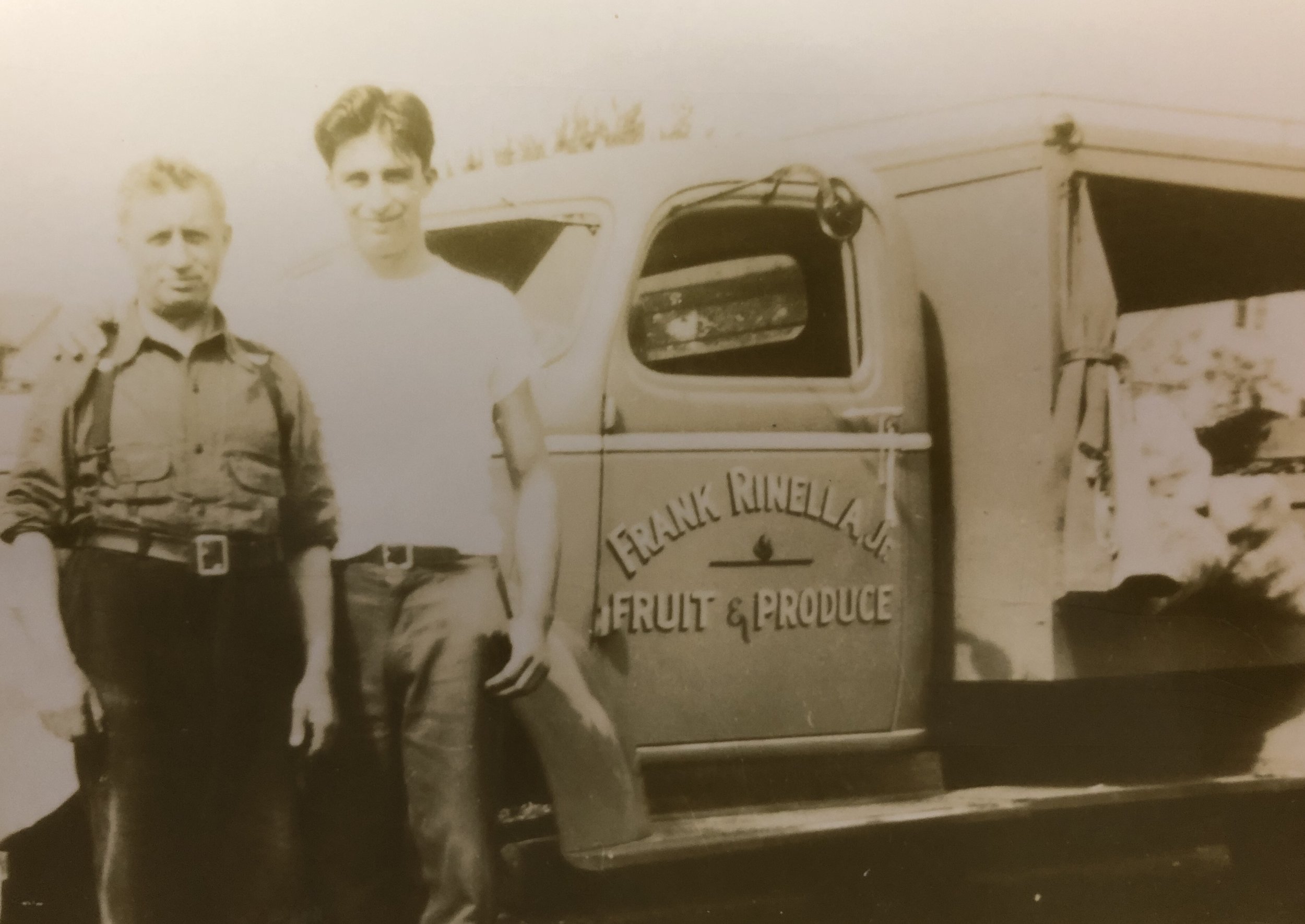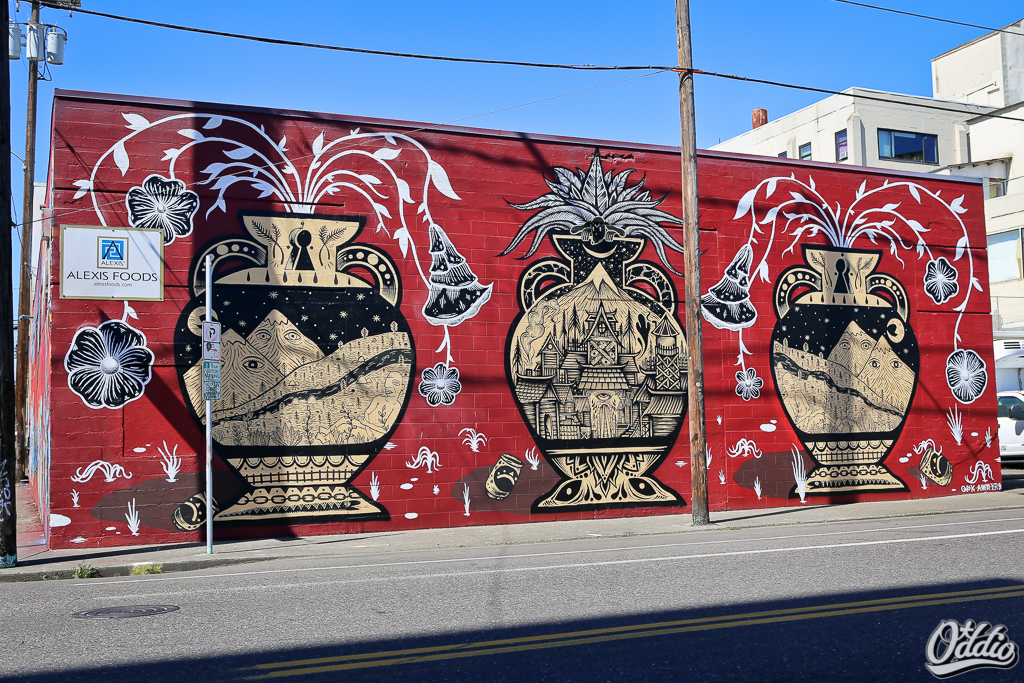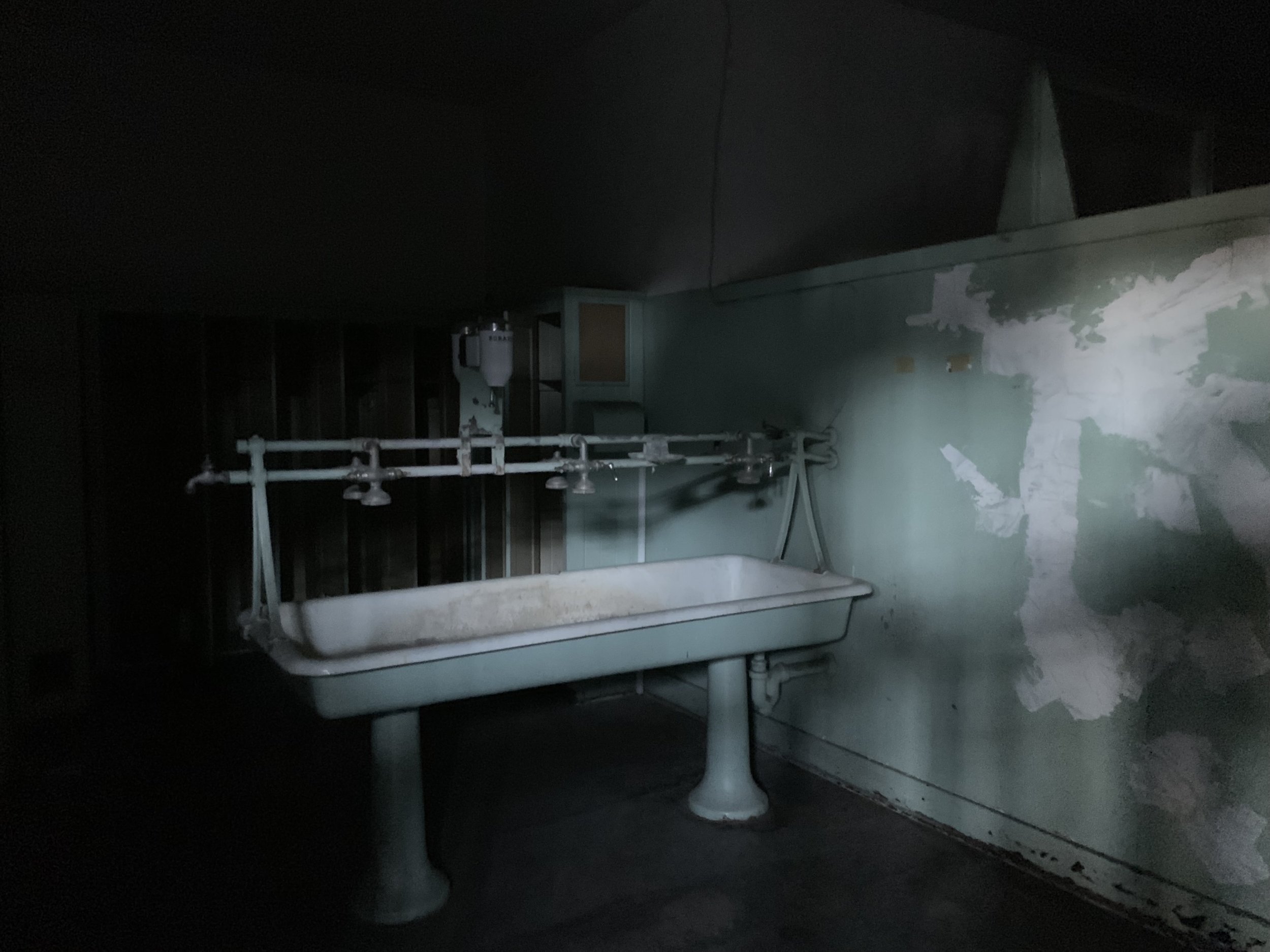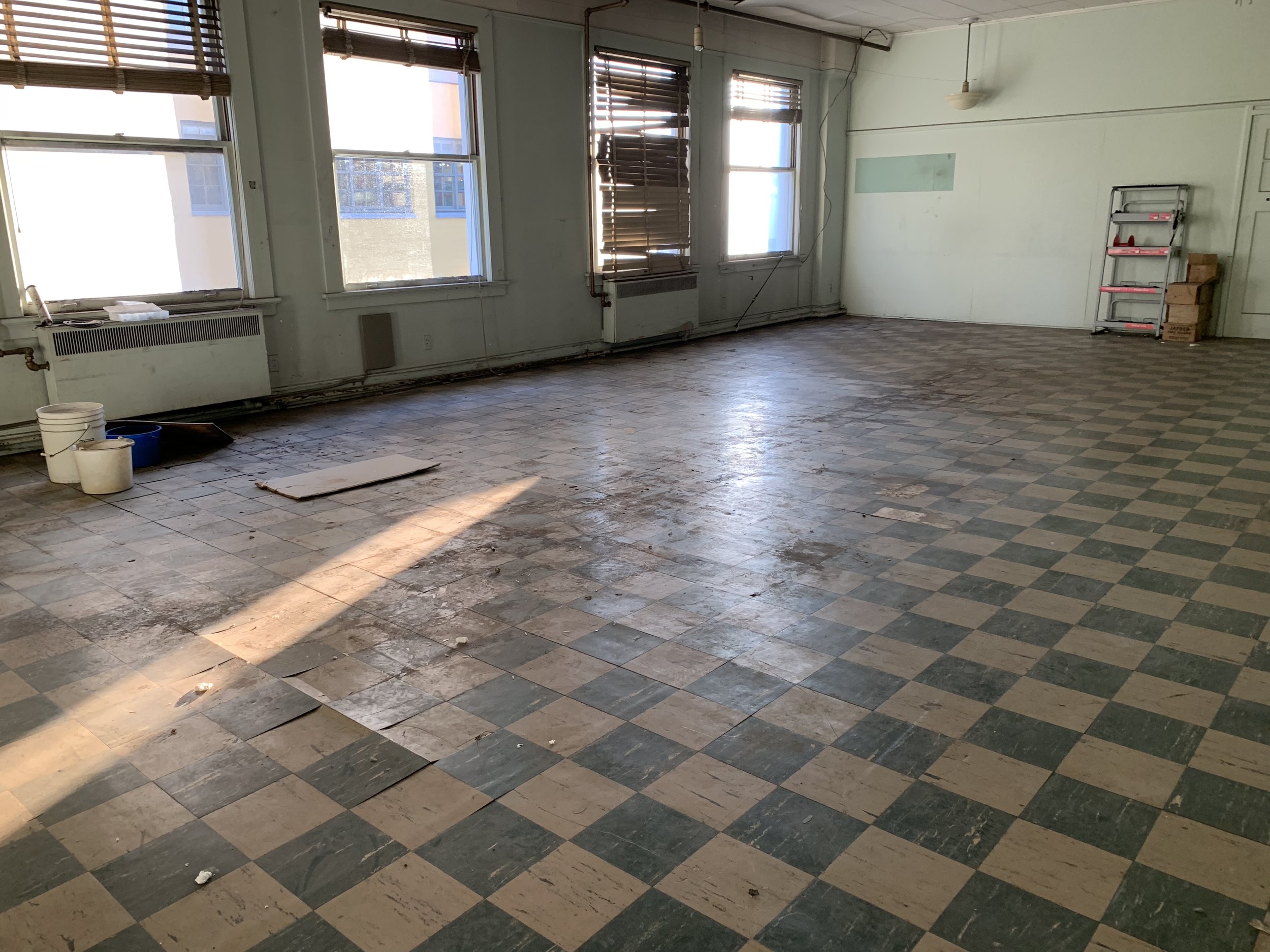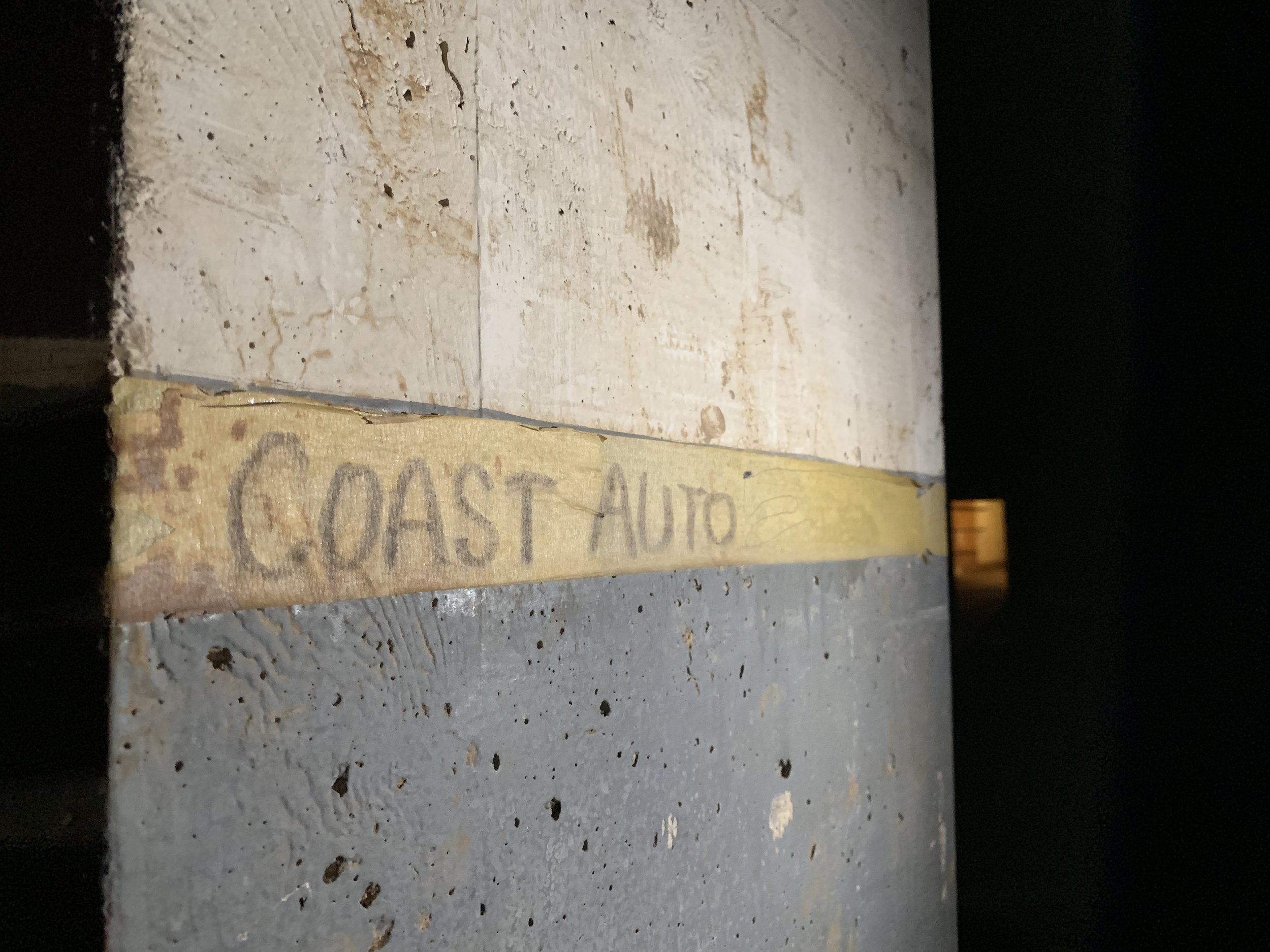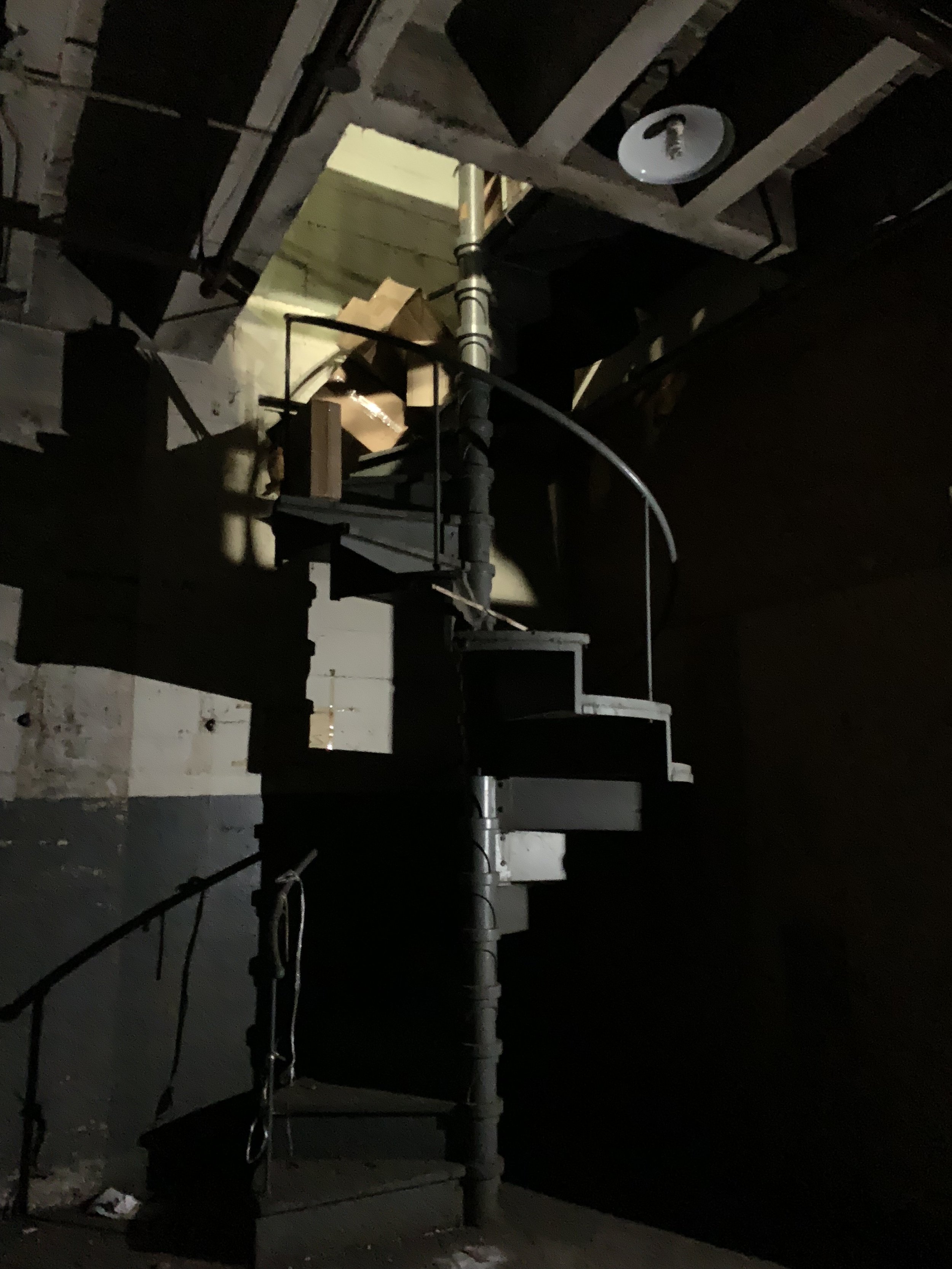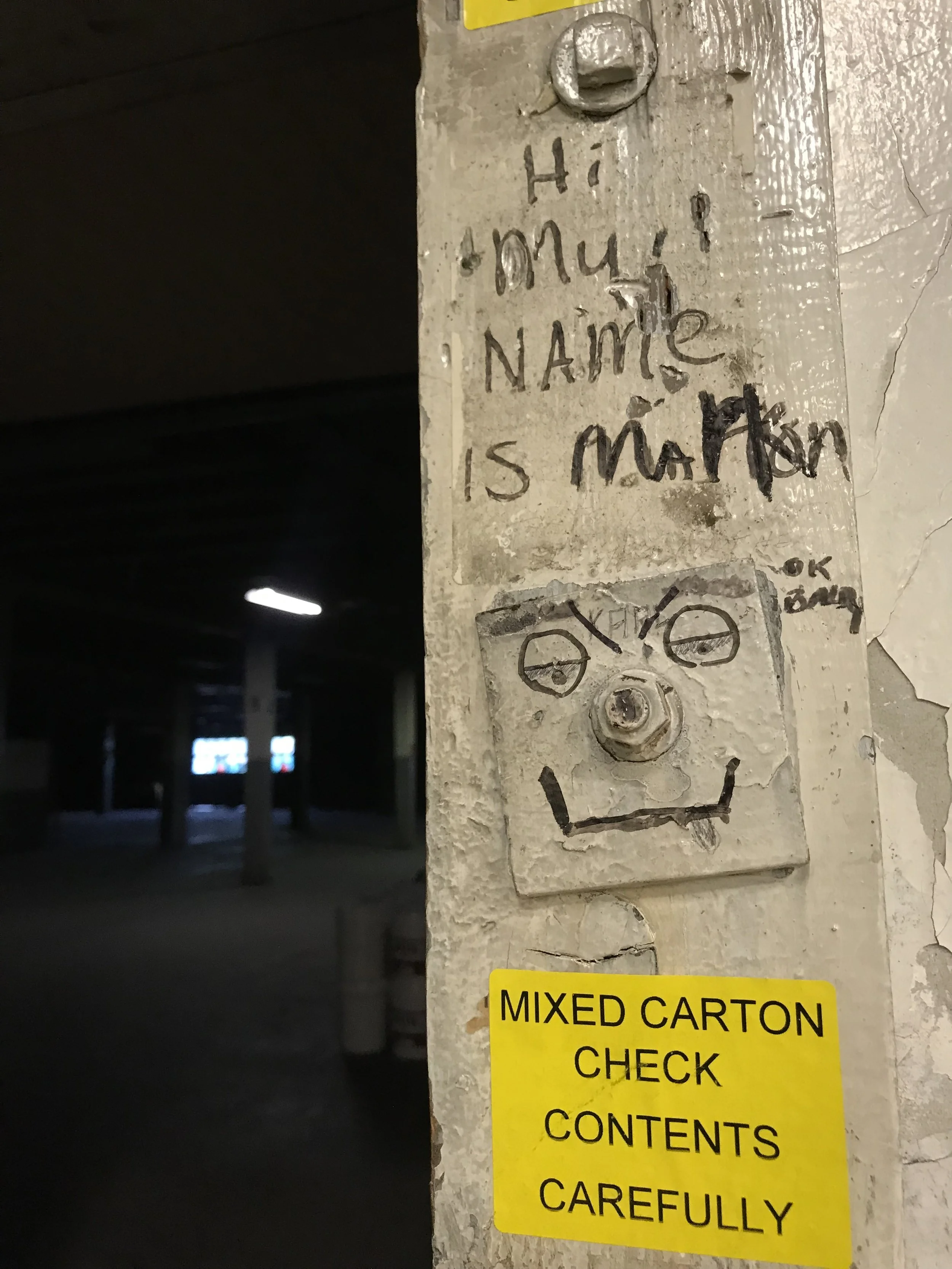In the fall of 2018, Portland Street Art Alliance (PSAA) was approached by Harsch Investments Properties. Harsch had recently purchased the old Coast Auto Supply building at SE 2nd & Stark in Portland’s Central Eastside Industrial District (CEID). Located at 125 SE Stark St, this site has a long and colorful past, being in the heart of the city’s Produce Row for the past 83 years, and a popular space for graffiti art over the past decade. With Harsch’s support, PSAA hired a team of four lead artists from the MLS (Nimby, Zae, Ckos, Ouch, Ugh, Raskoe, Senik, Elboe) and 4SK crews (Giver, Nekon, Abnr, Fiber) in Portland to coordinate a massive dual-mural, wrapping around most of the warehouse along Stark, 2nd, and Oak Streets.
The Produce Row Mural
PSAA wanted to ensure that local artists would still have access to the walls, so two teams of long-time Portland-based graffiti artists were hired to produce a design that was inspired by the history of the district, but with a fresh new twist to the traditional history murals. Digging through archive records, the team landed on a simple concept - massive piles of Willamette Valley fruits and vegetables. The team wanted to experiment with showcasing both sides of their artistic abilities; a concept that is very rarely seen. The final composition blended painterly techniques with their unique text-based graffiti lettering. This experiment manifested itself in overlaid wild-style graffiti lettering, keeping to the colors of the background imagery.
The mural painting took three months to complete, as the work had to be done incrementally due to Portland’s wet fall and winter weather. Most of the underlying base coats were done with bucket paint and rollers, and then the muralists added details with aerosol and brush paint.
PSAA is working with several Central Eastside property owners trying to ensure that art remains an integral part of the district’s identity. As the city and the district quickly changes beyond our collective control, we want to ensure that long time local graffiti culture is still part of the urban landscape.
PSAA is dedicated to creating inclusive models for place and district-making by engaging diverse audiences and artists, and increasing access to public art opportunities such as this, while helping to support local and regional artists.
Produce Row History
In 1913 Italian immigrants began establishing truck farms that supplied fruit and vegetable wholesalers in a bustling new riverside industrial district that became to be known as “Produce Row.” At the heart of this historic industrial area, are two parallel loading dock streets - 2nd & 3rd Avenues. These thoroughfares transect three viaducts - the Hawthorne Bridge, Morrison Bridge, and Burnside Bridge pass overhead creating deep cavern-like spaces cutting through the Central Eastside. In 1981 it was officially declared in as an ‘industrial sanctuary’ an effort to maintain its unique land use and character. Warehouses and storage facilities were a significant part of the district’s beginnings, and the area provided a variety of blue-collar jobs (Jones, 2014).
Today, SE 2nd and 3rd Avenues still rumble with heavy trucking activity, but the industrial uses have changed, with cleaner and lighter wholesalers, and an increasing number of exclusive commercial services, including fine dining restaurants, multi-media production, as well as high-end retail have begun moving into the CEID (Jones, 2014). This is juxtapose to Portland’s booming creative, tech, and service industry, which is closing in on this historic industrial sanctuary. The infamous DIY Burnside Skatepark lies just a few blocks north on SE 2nd Avenue, nestled underneath the Burnside Bridgehead surrounded by sparkling modern towers.
Produce Row used to be the home to dozens of produce warehouses, some of which are still in operation today. Family-owned Rinella Produce at 231 SE Alder St opened in 1914. The Rinella and Lombardo families immigrated from Sicily and Rome to the US. The business has been passed down from father to his son and is one of the oldest produce distribution buildings on the West Coast of the US.
Over the past three or four decades, Produce Row has nurtured newer generations of produce distributors. Pacific Coast Fruit Company at 201 NE 2nd Ave is another produce company that still exists on Produce Row. Pacific Coast was founded in 1977 by Emil Nemarnik. Today they have become one of the largest, independent produce distributors in the Northwest.
Alexis Foods at the corner of SE Stark and 2nd was established by Alexis Bakouros in 1987 after operating a successful Greek restaurant. Using his European contacts, Alexis was able to import high quality specialty foods from Greece, Spain, Italy and France. As the local market evolved and vendors emerged, Alexis Foods' product line expanded to also source crafted, locally sustainable products.
Even though Produce Row continues to thrive as a distribution hub, many of these warehouses and distributors are now gone, including the Independent Fruit and Produce Company pictured below. In the summer of 2017, Alexis Foods partnered with Portland Street Art Alliance to produce two murals by local artists, one of which depicts a series of Greek-style vases.
Another lost landmark was the Corno family-owned produce market. Corno’s opened in 1951 and was a very popular and well-loved market in Portland. It closed its doors in 1995, and was torn down in 2006 to make way for a pipe project which runs under 3rd Ave now.
Today, the Sheridan Fruit Company at 409 SE MLK Blvd is the last of Portland’s ‘old-school’ produce markets. In 1916, John Sheridan started an open-air produce market on Union Avenue (now MLK Blvd). In 1946, the Poleo Brothers, whose family still owns and operates The Sheridan Fruit Company today, purchased the company and began a wholesale operation in 1950.
The History of 125 SE Stark
Built in 1936, the building at 125 SE Stark St was originally home to Pacific Fruit and Produce, built and owned by the Portland Terminal Investment Company. Sometime in the 1980s it was purchased by Coast Auto Supply, which operated an auto supply business out of it until 2017 when it was acquired by Harsch.
